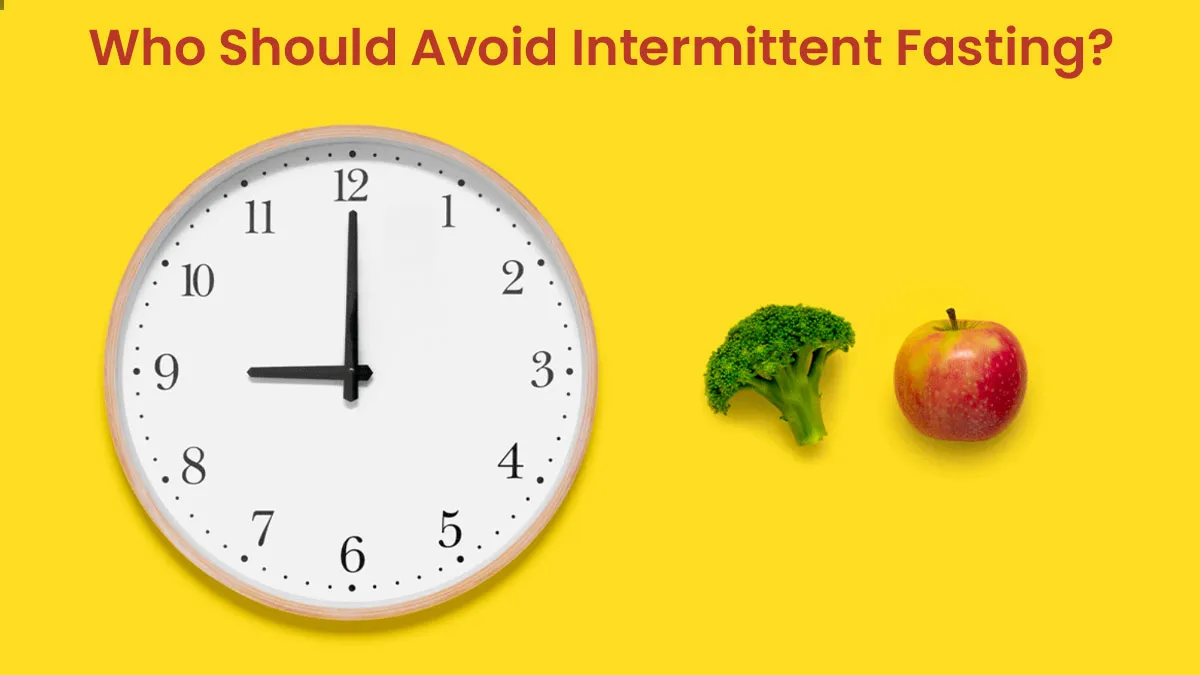
Intermittent fasting (IF) is a trendy way of losing weight and enhancing metabolism. It is a trendy eating habit in which you alternate eating and fasting. The most popular and well-known one is the so-called 16:8 diet, during which you consume everything you need to eat in 8 hours a day and starve during the other 16 hours. Although much has been reported about its assisting in weight loss and blood sugar management, new concerns have been raised by recent studies.
Table of Content:-
In a recent study, individuals who adhered to an 8-hour time-restricted diet were more likely to die of cardiovascular disease than individuals who ate over 12-16 hours per day. Read ahead to know more about the study and who is supposed to practice this form of fasting.
Study Around Links 8-Hour Eating Window to Higher Heart Risk![who should avoid Intermittent Fasting 1 - 2025-09-02T135302.738]()
Although there are some studies that indicate its positive impact on blood sugar levels and fat loss, recent research is concerned with its impact on heart health in the long term. According to a new study published in Diabetes & Metabolic Syndrome: Clinical Research and Reviews, the 8-hour eating window had the potential to raise the risk of heart-related death by 135 per cent. This was a long-term study that followed more than 19,000 adults in the U.S. over approximately eight years, comparing short eating windows with normal 12-14-hour eating periods.
In spite of the positive effects of intermittent fasting, such as insulin sensitivity, blood pressure, and inflammation reduction, this research can remind us that health is a multifaceted phenomenon. Individual health needs should be used to determine the patterns of fasting rather than trends and fashionable recommendations. Discussing intermittent fasting is a good idea with a doctor or a nutritionist before turning to intermittent fasting, particularly strict 8-hour periods of fasting.
ALSO READ: Study Shows THIS Alternative May Help Prevent Heart Attacks and Strokes
Who Should Avoid Intermittent Fasting?
Although there are advantages to using IF, the approach is not suitable for all. Some groups do not need to fast intermittently because it may be dangerous to their health:
- Heart Disease/Cancer: The new research suggests that patients who already have cardiovascular disease or cancer might be at higher risk when adhering to an 8-hour eating schedule.
- Pregnant or Breastfeeding women: Fasting may disrupt proper nutrition in pregnant and breastfeeding women, and this may have an impact on the health of both the mother and the infant.
- Children and Adolescents: Fasting can interfere with normal growth and development because the growing bodies need regular feeding.
- Older Adults: When fasting, older adults can lose muscle mass and become nutritionally deficient, which can affect their health.
- Individuals who have Eating Disorders: Fasting may contribute to increased disordered eating habits, which result in poor relationships with food.
- People with Some Medical Conditions: Patients with diabetes and type 1 diabetes, in particular, or those who take medications that impact metabolism, should address medical professionals prior to considering IF.
ALSO READ: How Dwayne Johnson Dropped Over 25 kg To Play UFC Legend in The Smashing Machine
Conclusion
Intermittent fasting cannot be a generalised answer. Some people can gain health opportunities, yet others need to be cautious when it comes to fasting, especially those with prior health issues or at certain stages of their lives. To be on the safe side and to make sure that specific changes in the diet are appropriate and safe, and necessary, it is necessary to discuss healthcare concerns with the medical workers.
Also watch this video
How we keep this article up to date:
We work with experts and keep a close eye on the latest in health and wellness. Whenever there is a new research or helpful information, we update our articles with accurate and useful advice.
Current Version

